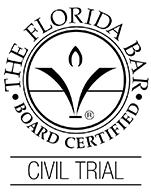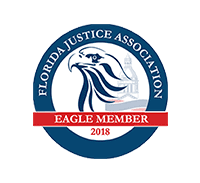THE BILL OF RIGHTS
- THE FIRST AMENDMENT has several important components:
- Protects exercising religious beliefs;
- Prohibits establishing a national religion;
- Protects freedom of speech;
- Protects freedom of the press and
- Protects the right to peaceful protest.
- THE SECOND AMENDMENT protects the right of people to bear arms due to the need to maintain a well-regulated militia.
- THE THIRD AMENDMENT protects citizens from being required to house soldiers without their consent.
- THE FOURTH AMENDMENT protects the right to be free from unreasonable searches and seizures. It specifies that no warrants may be issued without probable cause and a narrow description of the person and place.
- THE FIFTH AMENDMENT ensures that no one is deprived of life, liberty, or property without due process of law:
- Grand jury for “infamous crimes”;
- Protects against requiring self-incrimination;
- Protects against being tried for the same crime twice (double jeopardy);
- Protects the right to confront witnesses, the basis of subpoena power;
- Protects the right to counsel for criminal offenses;
- Nor shall private property be taken for public use, without just compensation.
- THE SIXTH AMENDMENT mandates the following rights for criminal defendants:
- Speedy trial;
- Public trial;
- Impartial jury;
- To be informed of all charges;
- To be confronted with witnesses, including subpoena power and
- The assistance of counsel.
- THE SEVENTH AMENDMENT protects the right to a jury trial for civil controversies that exceeds twenty dollars and specifies that trials must be held according to common law rules.
- THE EIGHTH AMENDMENT prohibits excessive fines and cruel and unusual punishment.
- THE NINTH AMENDMENT species that any right not specifically given to the federal government is retained by the people.
- THE TENTH AMENDMENT clarifies that powers not specified as federal, as reserved to the states or the people.
THE SEVENTH AMENDMENT AND THE RIGHT TO A JURY TRIAL
For much of our history, the Supreme Court held that the right to a jury trial in a civil case under the Seventh Amendment meant:
- A jury of twelve men;
- Supervised by a judge that could set aside a verdict;
- Any party could elect to waive the right;
- The verdict must be unanimous and
- That the right to a jury trial only applied to Federal cases.
The Civil Rights Act of 1957 was the first civil rights legislation since Reconstruction. This new act empowered federal prosecutors to obtain court injunctions against interference with the right to vote, along with ensuring women the right to serve on federal juries. In 1973, the Court held in Colgrove v. Battin that juries of “six persons” were permissible. The reference to “common law” referred to the British system, which had separate courts for “law and equity,” and has had little practical significance in the United States system, which merges those concepts. The more important distinction that’s developed in Seventh Amendment jurisprudence is the distinction between the power of the jury and the judge. The Courts have consistently ruled in favor of judges having the following powers:
- To express opinions about the facts;
- To call the jury’s attention to specific evidence;
- To state an opinion that there is not enough evidence to justify a particular verdict;
- To require jurors to answer interrogatories;
- To direct the jury, after all the evidence is heard, to return a verdict for the defendant based on insufficient evidence;
- To set aside a verdict or order a new trial and
- To refuse the defendant a new trial under certain circumstances.
IS IT AN ISSUE OF FACT OR LAW?
The most important principle that’s emerged regarding juries and judges’ powers is that questions of law are for the judge to decide, and questions of fact are for the jury. For example, when there is any dispute in the evidence, the jury must determine the dispute. When there is no factual dispute, the judge can grant summary judgment based on the law. A judge is only permitted to grant summary judgment when there is no dispute over facts.
HOW THE SEVENTH AMENDMENT IMPACTS ALL OTHER RIGHTS
The right to a jury trial in a civil case is the only right that the Supreme Court has not required that the states abide by. That said, most states have constitutions and laws that require jury trials in civil cases. It is surprising for Americans to learn that the United States is one of the few nations in the World that have jury trials. The civil jury became an essential part of asserting independence during colonial times. This was because the juries were composed of colonists and would sometimes nullify laws they disapproved of, especially regarding taxation. It’s also important to understand that the right to a civil jury trial gives teeth to all the other rights, due to the right to a jury trial in cases asserting rights. For example, a plaintiff alleging infringement on their right to free speech under the first amendment has a right to take their case to a jury due to the seventh amendment. The same goes for challenging a restriction on gun ownership protected by the Second Amendment or an infringement on the right to practice one’s religion protected by the First Amendment. That’s why the seventh amendment right to have a case heard by a jury of one’s peers is such an important right.
People who care about our traditions and our Constitution should carefully examine any law that takes away rights granted in the Constitution and the Bill of Rights. Any law that depletes the Constitution weakens our Civil Rights and could have unexpected consequences.


![cftla-member[2]](https://www.1800askdave.com/wp-content/uploads/2022/03/cftla-member2.png)
![cftla-member[3]](https://www.1800askdave.com/wp-content/uploads/2022/03/cftla-member3.png)










